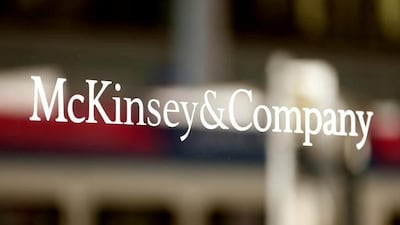Middle East consumers, especially in Saudi Arabia, are becoming less loyal to brands and more cost-conscious with more than half actively looking for cheaper alternatives, according to the Middle East Sentiment Survey by the consultants McKinsey & Co.
“Approximately 55 per cent of consumers are now actively looking for savings across markets, with those in Saudi Arabia leading the pack,” the global consultancy firm said in a report on Thursday.
“They are finding creative ways to spend less and more actively considering alternative brands than in previous years.”
The survey found that just 35 percent of consumers look to buy their preferred brands instead of finding cheaper alternatives, down from 45 per cent in April 2017. At the same time, the survey found that 78 per cent of consumers in the region changed their buying habits to save money.
_______________
Read More:
Saudi Arabia consumer spending to pick up as economy improves
UAE's 'Sin tax' driving smokers towards cheaper brands, though many say they have at least cut down
_______________
Consumers in the UAE and Saudi Arabia said they were forced over the past two years to make adjustments to their spending habits in order to regain some of their purchasing power.
“Interestingly, consumers in the UAE and KSA responded similarly to most questions that were put to them and despite fluctuating financial sentiment, they believe they are saving and delaying purchases less than in Spring 2017,” said Gemma D’Auria, leader of the retail practice in McKinsey’s Middle East office.
The trend of trading down may end however amid signs of economic resurgence, especially in Saudi Arabia. Consumption is set to improve in Saudi Arabia this year due to a roll-back of some government austerity measures and an uptick in economic growth. Private consumption is set to increase 2.5 per cent in 2018 from 1.5 per cent in 2017, BMI Research, a unit of rating agency Fitch, said in March. The rise comes as the kingdom’s economy is forecast to grow 1.6 per cent this year, after contracting by 0.7 per cent in 2017, it said.
Saudi Arabia, the world's largest oil exporter, embarked two years ago on an ambitious economic transformation plan - dubbed Saudi Arabia Vision 2030 - to lessen its reliance on revenue from hydrocarbons, as the price of crude started to slump from 2014. The government is also striving to get women to play a greater role in the economy by giving them more rights, such as allowing them to drive.
Reform efforts include a reduction of subsidies on fuel and electricity and the implementation of a 5 per cent VAT, which have crimped disposable incomes.
To temper the impact of rising prices, the government started cash transfers to households deemed the most vulnerable under the Citizens' Account Programme in January 2018. In the same month, the government said some civil servants would receive an extra 1,000 Saudi riyal per month for 2018.

